- Clone
- 546-16 (See other available formats)
- Regulatory Status
- RUO
- Other Names
- MOP1, ARNT interacting protein, hypoxia inducible factor 1 alpha
- Isotype
- Mouse IgG2b, κ
- Ave. Rating
- Submit a Review
- Product Citations
- publications
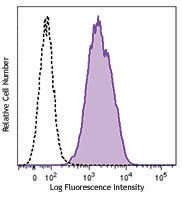
-

Hela cells were treated overnight with CoCl2 (top) or left untreated (bottom), then intracellularly stained with HIF1α (clone 546-16, filled histogram) PE or mouse IgG2b, κ PE isotype control (open histogram). -

| Cat # | Size | Price | Quantity Check Availability | Save | ||
|---|---|---|---|---|---|---|
| 359703 | 25 tests | 123€ | ||||
| 359704 | 100 tests | 268€ | ||||
HIF1, hypoxia induced factor 1, is a heterodimeric basic helix-loop-helix transcription factor composed of HIF1α and HIF1β. HIF1β is an aryl hydrocarbon receptor nuclear translocator (Arnt). Under normoxic conditions, HIF1α undergoes prolyl hydroxylation, which leads to degradation of HIF1α by the proteasome. Oxygen-starvation inhibits prolyl hydroxylation and prevents proteasomal degradation of HIF1α. Following nuclear translocation, HIF1α binds to the core DNA sequence 5'-[AG]CGTG-3' within the hypoxia responsive element (HRE); only the HIF1 heterodimer can bind DNA. HIF1 is a master regulator of the response to hypoxia and induces transcription of multiple genes including VEGF, glucose transporters, and proteins that aid in adaptation to hypoxic conditions. HIF1 protein is also involved in angiogenesis and energy metabolism.
Product DetailsProduct Details
- Verified Reactivity
- Human
- Antibody Type
- Monoclonal
- Host Species
- Mouse
- Immunogen
- Recombinant HIF1α
- Formulation
- Phosphate-buffered solution, pH 7.2, containing 0.09% sodium azide and BSA (origin USA)
- Preparation
- The antibody was purified by affinity chromatography and conjugated with PE under optimal conditions.
- Concentration
- Lot-specific (to obtain lot-specific concentration and expiration, please enter the lot number in our Certificate of Analysis online tool.)
- Storage & Handling
- The antibody solution should be stored undiluted between 2°C and 8°C, and protected from prolonged exposure to light. Do not freeze.
- Application
-
ICFC - Quality tested
- Recommended Usage
-
Each lot of this antibody is quality control tested by intracellular immunofluorescent staining with flow cytometric analysis. For flow cytometric staining, the suggested use of this reagent is 5 µl per million cells in 100 µl staining volume or 5 µl per 100 µl of whole blood.
- Excitation Laser
-
Blue Laser (488 nm)
Green Laser (532 nm)/Yellow-Green Laser (561 nm)
- Product Citations
-
- RRID
-
AB_2562422 (BioLegend Cat. No. 359703)
AB_2562423 (BioLegend Cat. No. 359704)
Antigen Details
- Structure
- 92.6 kD, contains one basic helix-loop-helix structure (bHLH), one PAS associated C - terminal (PAC) domain and two PER-ARNT-SIM (PAS) domains
- Distribution
-
Under normoxic conditions detected in the cytoplasm; oxygen starvation causes nuclear translocation
- Function
- Master regulator of hypoxia in the adaptive immune response; under low oxygen conditions, induces expression of multiple genes such as VEGF, erythropoietin, and other genes that aid in adaptation to low oxygen concentrations
- Interaction
- Heterodimer binds 5'-[AG]CGTG-3' sequence of DNA in the hypoxia response element of target genes; interacts with COPS5, EP300, CITED2
- Biology Area
- Cell Biology, Immunology, Innate Immunity, Transcription Factors
- Molecular Family
- Nuclear Markers
- Antigen References
-
1. Wang GL and Semenza GL. 1993. Proc. Natl. Acad. Sci. 90:4304.
2. Wang GL and Semenza GL. 1993. J. Biol. Chem. 268:21513.
3. Wang GL and Semenza GL. 1995. J. Biol. Chem. 270:1230.
4. Galbraith MD, et al. 2013. Cell. 153:1327. - Gene ID
- 3091 View all products for this Gene ID
- UniProt
- View information about HIF1alpha on UniProt.org
Related FAQs
- What type of PE do you use in your conjugates?
- We use R-PE in our conjugates.
Other Formats
View All HIF1α Reagents Request Custom Conjugation| Description | Clone | Applications |
|---|---|---|
| Alexa Fluor® 647 anti-human HIF1α | 546-16 | ICFC |
| PE anti-human HIF1α | 546-16 | ICFC |
| Alexa Fluor® 488 anti-human HIF1α | 546-16 | ICFC |
Customers Also Purchased
Compare Data Across All Formats
This data display is provided for general comparisons between formats.
Your actual data may vary due to variations in samples, target cells, instruments and their settings, staining conditions, and other factors.
If you need assistance with selecting the best format contact our expert technical support team.
-
Alexa Fluor® 647 anti-human HIF1α
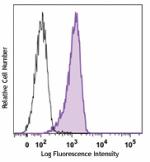
Hela cells were treated overnight (top) or untreated (bottom... 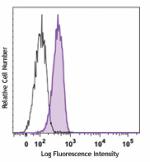
-
PE anti-human HIF1α
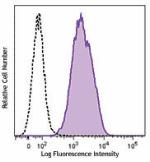
Hela cells were treated overnight with CoCl2 (top... 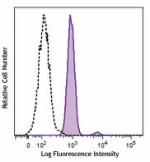
-
Alexa Fluor® 488 anti-human HIF1α
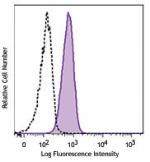
HeLa cells were treated overnight (top) or untreated (bottom... 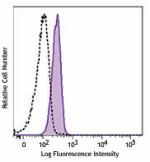
 Login / Register
Login / Register 









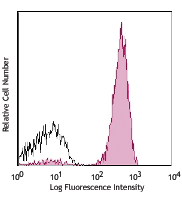
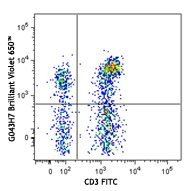
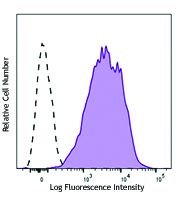
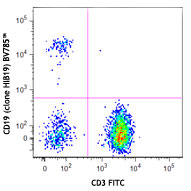



Follow Us